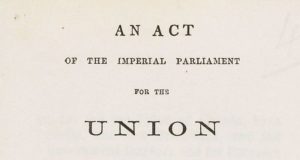The administrative state, the supposed sword of progressives, is not necessarily so.
In many countries, the administrative state was constituted on the urging of progressives to advance a social justice agenda. In the United States, progressive reformers during the New Deal era sought to make government a “prescriptive entity” designed to advance certain progressive goals. Executive orders reached a “heyday” during the New Deal in support of social welfare goals. In Canada, labour boards were constituted in order to forestall judicial intervention which would prioritize the individual over the collective . The courts, initially hesitant to allow this development, abnegated their authority on the urging of the progressive reformers and began to defer to these instantiations of legislative intent. The vesting of power in the executive by statute, and the agreement of the courts to this arrangement, is generally celebrated by those who view the administrative state as a means to achieve social equality.
But legislative delegation and the resulting judicial deference are fickle bedfellows, because they can be equally used to advance goals contrary to progressive causes. Those advocating for greater legislative delegation propounded a theory of democracy which tied a technocratic bureaucracy to political oversight and implementation, generally by the executive. However, while independent and expert “social justice tribunals” could be established with legislative powers, the opposite is also true. With powers vested by legislatures, the executive can act contrary to social justice goals, or essentially force others to do so. Yet the legal logic of deference still extends to these decision-makers. Therefore, progressives can and should think twice about deference from a political perspective.
The recent high-profile decision of the Supreme Court of the United States in Trump v Hawaii demonstrates this point. The case concerned a Presidential Proclamation which restricted travel to the United States by eight different countries. The President, under statutory power granted to him by 8 U.S.C. s.1182(f), was empowered to suspend the entry of all aliens or any class of aliens. The Proclamation was issued under this broad legislative grant. The Proclamation also set up a system of waivers, and instructed executive officers acting according to the Proclamation on the criteria for these waivers. Consular officers were bound to apply the Proclamation.
The Proclamation was challenged on constitutional and statutory grounds. On the latter, the Plaintiffs argued that the Proclamation exceeded the authority granted by statute. But the Court disagreed. It concluded that s.1182(f) was broad, and in fact, “exudes deference to the President in every clause (at 10). A hard-look at the exercise of the President’s delegated authority would be “inconsistent with the broad statutory text…” (at 13). Accordingly, the Court found the Proclamation lawful.
Many supporters of social justice goals who see the administrative state as the vessel for these goals are likely to disagree, on a political level, with the result in Trump v Hawaii—even if there is agreement with the analytical path. But this alone is not enough to justify deference, because “law, not man, is king.” Instead, deference must extend to the President and his executive officers because the legal justifications for deference are the same as they are in contexts where social justice goals are at play. There are typically two such justifications: legislative delegation and expertise. In the United States, consular officers are delegated authority to issue visas. The legislature has granted the officers, acting under authority of the President, the power to apply the legislative criteria for visas. Their authority is circumscribed by executive orders which bind executive branch officials. In this case, the Proclamation allowed the officers in applying the criteria to grant waivers. But these officers are still delegated authority to issues visas, no matter the executive qualifications. And, they presumably have expertise based on their experience. The traditional legal rationales for deference apply in this case like any other, and so deference supported a political result with which most progressives would disagree.
In the American example, defenders of deference may retort that the delegation was to the President, the head of the executive, and a nakedly political figure. In other cases, for example involving labour boards, delegation occurs to an expert, independent tribunal. This could be a convincing distinction which limits the scope of deference for those political actors intimately connected to the executive, while reserving intervention for more independent actors.
But this distinction ignores that, no matter the independence of tribunals, there is still some connection to the executive, either through the purse strings or through a direct power of appointment or removal of members. Further, a bright line distinction between “ministerial” and “adjudicative” acts ignores the fact that the argument for deference is essentially the same in each case, based on the same justifications such as the expertise of the decision-maker and the mere fact of delegation. Finally, even if the defenders were right, nothing stops the legislature from establishing, and the executive from staffing, a board designed to stymie progressive goals. Many would point to modern immigration and refugee boards as an example. This is the Janus-face of administrative power, which can be used for an infinite number of political purposes.
Progressives have spent more than a generation asking courts to stay out of the business of administration, especially because of their supposed conservative and market-based political philosophy. This largely worked. The administrative state is now entrenched in many common law countries. But administrative power knows no ideology. Its only ideology is power in a raw sense. That power—being judicial, legislative, and executive power merged—can be wielded by those with anti-progressive goals, or more dangerously, by those with authoritarian tendencies who seek to “throw things into confusion that he may ride the storm and direct the whirlwind.”
Progressives should consider the implications of widespread delegation and deference and revisit the assumptions underlying the New Deal. They no longer apply in today’s complex administrative state.
This piece first appeared on the Admin Law Blog
 Advocates for the Rule of Law
Advocates for the Rule of Law



